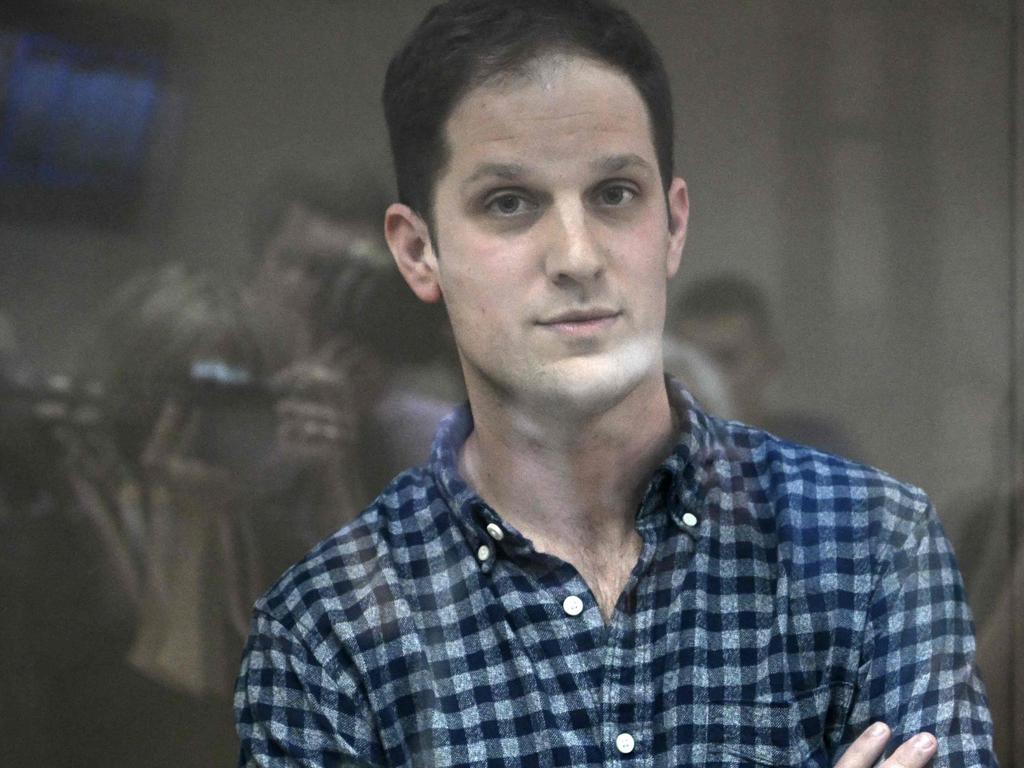The shadowy judicial system that controls the fate of WSJ’s Evan Gershkovich
Defense of falsely accused reporter faces immense hurdles in Russian court that produces few acquittals
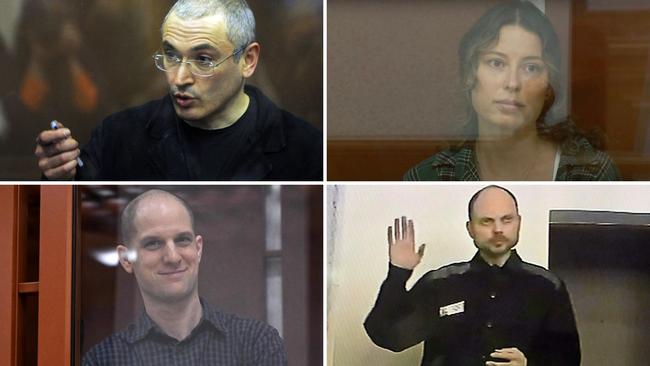
Wall Street Journal reporter Evan Gershkovich entered a Yekaterinburg courtroom at the start of his secret trial. Television cameras crowded around him as he stood in a cage surrounded by bulletproof glass, his head newly shaved due to prison rules. Then the media was ushered out, leaving him with his defence team, the state prosecutor and one or more judges. Neither U.S. Embassy personnel nor the reporters’ friends or fellow journalists were allowed to remain.
Gershkovich, a 32-year-old American journalist, was detained in Yekaterinburg in March 2023 on an espionage accusation that he, the U.S. government and The Wall Street Journal vehemently deny. The Russian authorities haven’t publicly provided any evidence of his guilt.
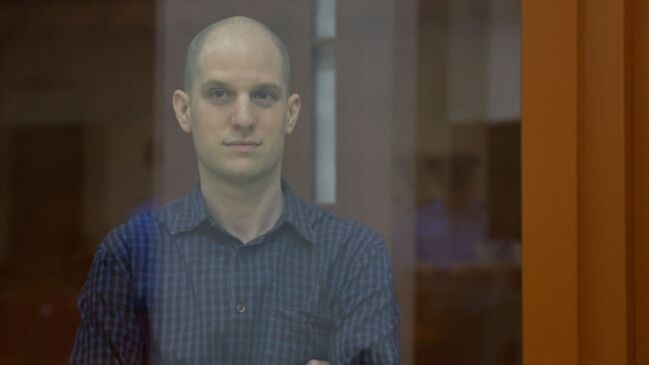
The Wednesday hearing wrapped up after 2 1/2 hours. The court said Gershkovich’s next hearing was set for Aug. 13.
What happens in Gershkovich’s secret trial is largely a mystery, as even the lawyers representing him are restricted from publicly discussing it. Conviction could carry a prison sentence of 10 to 20 years. In 2021, the judge now overseeing Gershkovich’s trial told a local news outlet that he had only issued three or four acquittals in 21 years of service.
Gershkovich is now ensnared in a shadowy judicial system that operates largely at the service of the state security apparatuses. Government prosecutors wield immense power and control, information is restricted, defence evidence is sidelined and Moscow’s propaganda machine is deployed to discredit defendants unable to speak for themselves. Few are ever acquitted.
Russian President Vladimir Putin indicated in February that he would be open to a prisoner swap with the U.S. for Gershkovich. Last week, Russia said it is awaiting a response from Washington to its proposals for a possible exchange of prisoners.
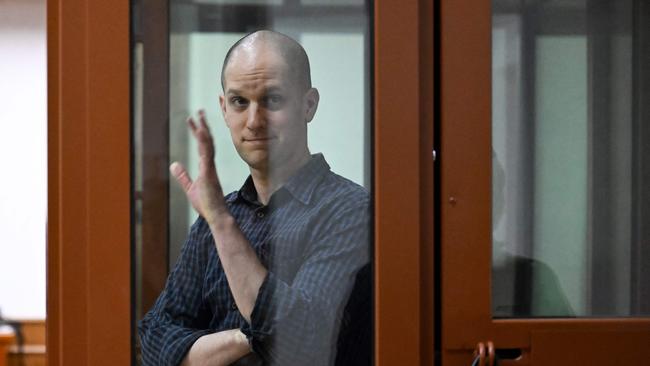
Russia again signalled it was ready to negotiate Gershkovich’s swap on Wednesday, emphasising how political machinations are at play in — and often are driving — many high-profile cases involving foreigners.
The Kremlin has “repeatedly emphasised that the U.S.” should “seriously consider the signals” Moscow has sent to Washington about possible deals, Deputy Foreign Minister Sergei Ryabkov told state news agency RIA Novosti, without giving further details.
In conducting the trial in secret, citing classified state secrets that need to be protected, the Russian authorities have full control over its coverage. In past closed trials, selective leaks have formed the basis for one-sided state television reports aimed at selling the government’s case to the public.
Tight control over all information about espionage and treason trials in Russia also hobbles legal teams’ efforts to mount a convincing defence. Gershkovich’s lawyers are likely restricted from accessing many documents relating to the case in the courtroom, according to lawyers involved in past trials involving state secrets.
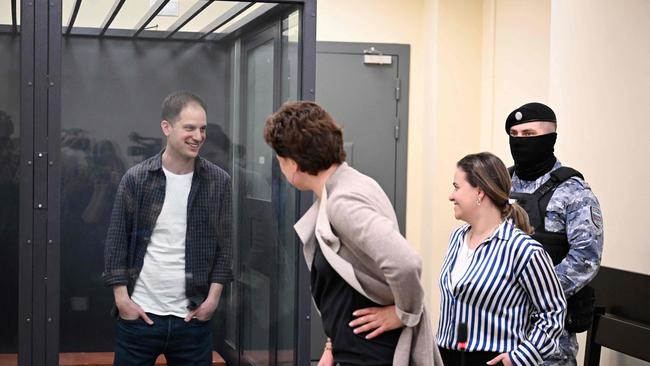
“They create conditions that make it impossible for a lawyer to work effectively with the materials of the case,” said Ivan Pavlov, a Russian lawyer who specialises in treason and espionage cases and says he was involved in more than 100 closed trials before he left the country in 2021. “It’s a one-sided game.” Russia’s Ministry of Justice didn’t respond to questions for this article. “We have been clear from the start that Evan has done nothing wrong and never should have been arrested in the first place,” the U.S. Embassy in Moscow said Wednesday. “His case is not about evidence, procedural norms, or the rule of law. It is about the Kremlin using American citizens to achieve its political objectives.” Almar Latour, the publisher of the Journal and CEO of its parent company, Dow Jones, and the Journal’s editor in chief, Emma Tucker, said Wednesday it was jarring to see Gershkovich “in yet another courtroom for a sham trial held in secret and based on fabricated accusations. The time to bring Evan home is now, and we continue to demand his immediate release.”
Closed trials, rare acquittals
Closed trials are increasingly routine in Russia, unlike in the U.S., where it is more difficult to revoke a defendant’s right to an open trial. Under Russian law, if a judge decides that an open proceeding might reveal state secrets or information protected by law, if the defendant is under age, or if the case concerns allegations of rape and other sexual crimes, the judge can order the trial closed.
But in recent years, and especially since the start of Russia’s war in Ukraine, judges have increasingly used their powers to close trials that were initially expected to be open for journalists and members of the public. Lawyers routinely cite statistics saying that the number of closed trials in Russia had doubled by 2022 from the previous few years. Since the war, the number has grown even more, lawyers say.
Earlier this month, a judge in Moscow closed the trial of a prominent playwright and a director accused of justifying terrorism in one of their plays. The judge cited threats directed at the women in comments on social media, but the women’s lawyer, Sergei Badamshin, said they never raised concerns about threats and were against closing the trial. The women have denied the charges, and the trial is ongoing.
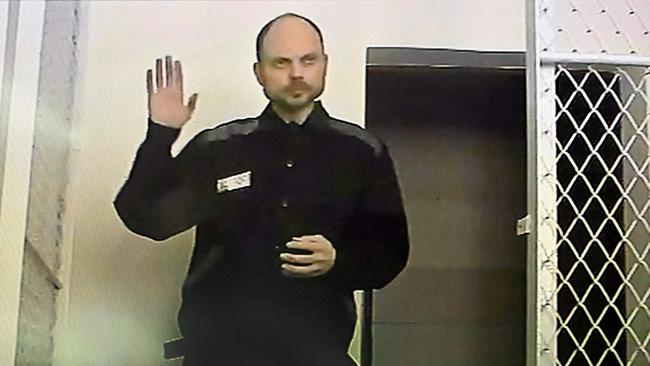
In closed trials, judges can more readily deny the defence from admitting evidence to the court, said Vadim Prokhorov, the lawyer for opposition politician Vladimir Kara-Murza. “No one will know about any shortcomings, interactions, any violations,” he said.
Gershkovich’s trial, which the court stated earlier this month will be closed without naming a specific reason, is playing out in the Sverdlovsk Regional Court in Yekaterinburg, a bland brown-and-beige complex beside a highway overpass near the city centre. It contains 37 courtrooms and an entrance emblazoned with the words “Palace of Justice, ” and is the highest civilian courthouse in the region. It regularly hosts closed trials.
Acquittals in this court and others in the surrounding Sverdlovsk Region are extremely rare: of the 22,500 criminal cases heard there last year, only 39 led to acquittal, according to a March press release from the court. Russian lawyers say that in espionage cases brought by the FSB, a conviction is practically a foregone conclusion.
Last week, the Yekaterinburg court commenced the closed trial of dual U.S.-Russian citizen Ksenia Karelina, a 32-year-old esthetician at a Beverly Hills spa whom the FSB arrested on treason charges in February while she was on a trip to see family in Yekaterinburg. Russia alleged she had collected funds for a Ukrainian organisation that were used to buy military supplies. Karelina hasn’t publicly responded to the allegation, her lawyer said, adding that he wasn’t able to say more about the case.
Russian law allows most lawyers involved in sensitive cases to access state secrets relating to the case for the duration of the court proceedings. But in practice, defence teams are often restricted from key case materials, or forced to rely on their memories after brief looks at documents, lawyers involved in past espionage trials say.
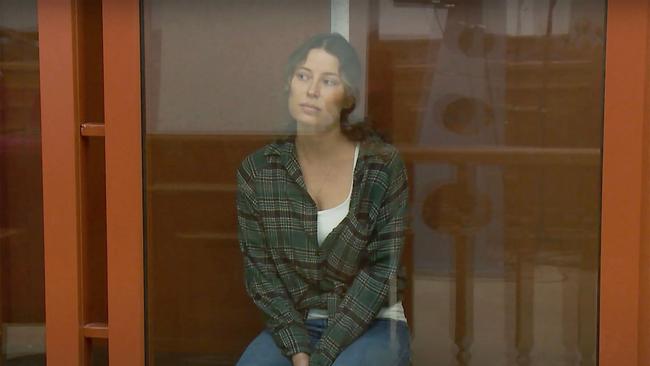
Lawyers can analyse ahead of the trial any case documents containing what prosecutors consider state secrets, but they cannot photograph or copy them. They can only make notes in a notebook that is then stored together with the classified case files, and handed out to the lawyers in court for the duration of each hearing, before being handed back to the judge.
When lawyer Mikhail Benyash was studying case files with alleged state secrets in 2022, in preparation for a trial of a dozen Russian servicemen who refused orders to fight in Ukraine, he was placed in a small room and allowed to make handwritten notes while court employees stood over him and pressured him to work faster, he said. He couldn’t take any of the material home, and had to memorise as much as he could for the trial because he wasn’t allowed to see the files in court.
“For a defence lawyer, the whole preparation for such a trial happens in his own memory,” Benyash said. “Whatever he remembers, he can use.” Pavlov, who represented defendants in many of Russia’s most high-profile treason cases before he left Russia fearing arrest in 2021, said he would always request that investigators make three extra copies of all the materials they produced for the indictment, so that Pavlov, his legal assistant and the defendant could get copies to study before the trial began. Pavlov would go home each day after a hearing and make notes to memorise parts of the case, including often convoluted legalistic language, and be ready for the next hearing.
“You have to have a great memory to do this effectively,” he said. “With trials like this, you have to prepare in advance, during the investigation stage. Because afterwards it’s too late.”
Watched by FSB
In most espionage trials, the only people inside the court are the defendant, his lawyer, the state prosecutor and one or more judges. If a judge permits it, agents of the FSB, which is tasked with safeguarding state secrets, bring the defendant in and can sit through the closed hearing, according to Pavlov. The FSB can then watch judges and prosecutors during the proceedings, as well as the government employees brought in to assess the level of secrecy of case materials.
All will be under pressure to back the conclusions in the FSB investigation, because their jobs rely on having the access to state secrets that is granted to them by the FSB, Pavlov said.
“The people who pursued the defendant are now sitting there as the only spectators to his trial,” he said. “And these are not just some law-enforcement officials. These are employees of the all-powerful security service, and the judge knows they’re carefully watching him. ”Russia’s closed trials have their roots in the Soviet Union, where they offered a legalistic patina for mass killings of political opponents — real or perceived — as well as ethnic minorities and often seemingly random people who could be presented as antagonists and wrongdoers as a way to display loyalty and spread fear.
During those trials of the 1930s, which often happened at night, a defendant would be brought before a trio, or troika, of judicial officials. Investigators of the NKVD, a predecessor of the KGB, would read out charges and recommendations for sentencing, usually demanding the death sentence, to which the officials readily agreed. The hearings sometimes took only minutes at a time, allowing the officials to hear hundreds in one sitting. The rapid fire death sentences helped liquidate entire classes of people in short order.
Later in the Soviet Union, closed trials were used less frequently. Hearings remained open but instead of allowing access to an independent press or diplomats, political cases were filled with activists of the Soviet Komsomol youth group, which always advocated for the harsh hand of the state.
When the Soviet Union collapsed in 1991, the government of then-President Boris Yeltsin launched a short-lived reform of the court system, but the FSB, a successor agency of the KGB, remained powerful and successfully sought to maintain the courts’ focus on safeguarding sensitive information.
Following a brief flirtation with judicial reform in the 1990s, in which Russia adopted some of the trappings of Western court systems, the arrival of Putin and the growing power of the FSB, which he once directed, turned the clock back on the system. Judges began issuing more politically motivated verdicts, say lawyers.
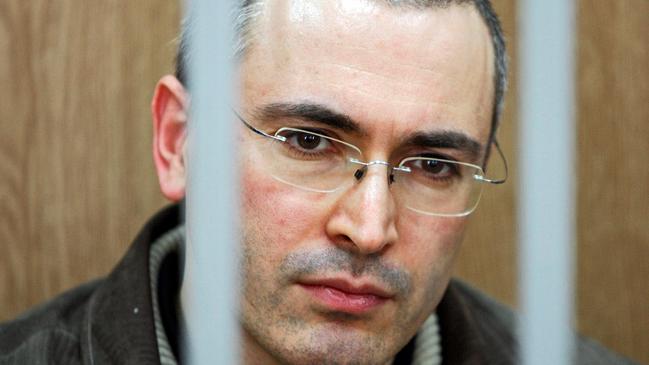
The case of Russian oil tycoon Mikhail Khodorkovsky was a landmark, after which judges began to understand that political priorities overrode judicial ones, said a lawyer who still works in Russia.
Khodorkovsky was accused of many of the excesses of the often deadly business culture of 1990s Russia, but he crossed Putin when he continued funding opposition-minded political parties and civil society. He was detained in 2003, his business empire was dismantled and he was convicted of tax fraud and later embezzlement. He has denied the charges and was pardoned by Putin in 2013.
As Russia’s political system grew more centralised under Putin, the presidential office and the FSB gained more power over an increasing number of state bodies, including the judiciary. Now all judges who deal with state secrets must ask for permission to leave the country, and all judges, except for those on the Constitutional Court, are appointed by the president. Former judges and prosecutors say the FSB often pressures judges to convict.
“It’s seldom that there are orders given to a judge, they just know what the right thing to do is,” the lawyer said.
Blocking media coverage
The classification of materials in espionage trials has led to absurd situations. Indictments on espionage charges contained classified information that couldn’t by law be handled by defendants pending trial.
When Grigory Pasko, a Russian journalist charged with treason, was in his cell awaiting trial in 1998, he said investigators brought a copy of his indictment locked inside a metal safe. They had fulfilled the legal requirement to hand him his indictment, but made sure not to violate laws that ban him from seeing classified evidence.
Pasko was ultimately sentenced to four years in prison in 2001 for what investigators said was an attempt to hand classified documents to contacts in Japan. Pasko denied the charges.
Today’s indictments don’t contain classified material, Pavlov said, so can be handled by defendants and even copied with the investigators’ permission.
In the past, lawyers involved in closed trials have used the media to inform the world about what was taking place, being careful to not repeat any state secrets mentioned in court. Now, lawyers have been spooked by the authorities, and sometimes threatened, to not engage the media.
Prokhorov, the lawyer for Kara-Murza, the opposition politician, said he was threatened with criminal charges by the judge if he didn’t stop giving interviews about the case, which was tried last year. Kara-Murza, who denied the charges, was on trial for criticising the Kremlin and its war in Ukraine.
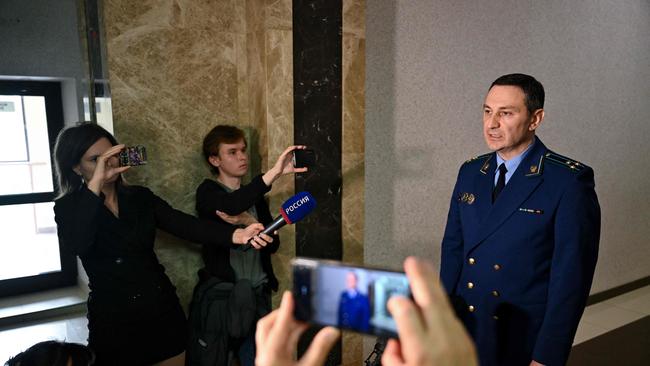
He said that when he was defending Kara-Murza, the lack of the press at his closed court case pushed the case into oblivion inside Russia, one of the worst fates for opponents of the Kremlin. To try to get his story out, Prokhorov gave daily briefings to journalists, causing the judge to threaten him with contempt of court.
Prokhorov ultimately fled Russia just before Kara-Murza’s sentence of 25 years in jail was delivered, part of a small but noticeable exodus from Russia of prominent lawyers who have represented opposition figures and activists protesting the war in Ukraine.
“The practice of closing a politically motivated case has nothing to do with law. The main goal is to close the mouths of the regime’s political opponents and of the defendants themselves,” said Prokhorov.
Free rein to propaganda
For Gershkovich’s case, the closure of the trial gives the state and its media machine unfettered control over the portrayal of the accusations against him.
In the absence of independent information on court proceedings, the Kremlin’s state propaganda machine can often fill the void with planted articles in Russia’s pro-Kremlin media landscape. Late last year, Russian state television put together a documentary on the court case of Ivan Safronov, a former journalist at Moscow daily newspaper Kommersant who was convicted of working for Czech intelligence for cash. Safronov has denied the allegations.
In the course of the documentary’s production, investigators and witnesses for the prosecutor were invited to be interviewed on air and clips from Safronov’s police questioning were shown. As a result, the documentary was the only treatment the Russian public has seen of Safronov’s court case.
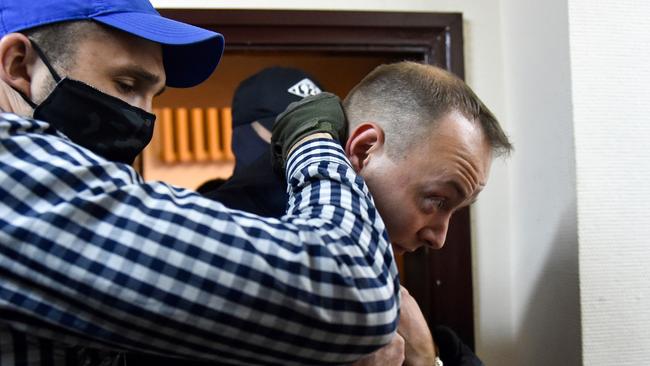
Trials in Russia are often recorded, but closed trials are not, meaning there is no record of them beyond the materials assembled by state prosecutors and judges, which in the Yekaterinburg court overseeing Gershkovich’s case are kept in the archives for 50 years.
According to Pavlov, the best the defence can hope for in such highly controlled legal proceedings is to lodge appeals against the evidence gathered and make sure their protests are noted in the court record. Those appeals will be archived, and in the future the defendant convicted on unfair charges could potentially be rehabilitated under a new political regime.
“We understand we are running a marathon, not a sprint,” Pavlov said of lawyers such as him. “And we understand that we must do this work now so that in the future, many of our defendants are acquitted … This process will no doubt begin in Russia, maybe not tomorrow, maybe not next year, but we must prepare for it already today.”
The Wall Street Journal

